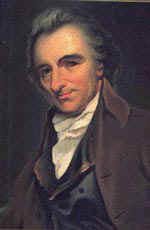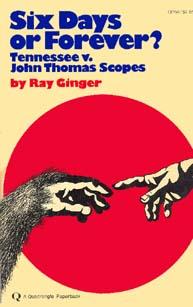Paine's Rules for Writing Democratically

I'm currently reading Harvey J. Kaye's Thomas Paine and the Promise of America, a truly inspiring account of Paine's life and effect on American radicalism throughout the centuries. Coincidentally it is also reviewed by Joseph Ellis in today's NYTs Book Review. During my reading I came upon Paine's explanation of his writing style, which is Orwell before Orwell:
"I dwell not upon the vapors of the imagination...I bring reason to your ears, and, in language as plain as A,B,C, hold up truth to your eyes."Kaye further elucidates:
Identifying with working people, he wrote so they in turn would identify with him. He kept his words and sentences "short and accessible," avoided scholarly quotations and foreign phrases, and said what he had to say in a plain yet passionate fashion. His style was bold, lucid, and lively, at times "vulgar," at others "lyrical."Paine understood that if democracy was to dig deep into the American soil, the press had to write to working people and stir them to engage in politics. One of the things I hate about writing and writers presently, and which I try to guard against vigilantly, is pretension and condescension on the page (I don't always succeed as my writing on religion demonstrates.) Much of blogging and journalism is geared toward an educated elite, inaccessible and intimidating to working and poor Americans who feel like they need a Webster's dictionary by their side for comprehension. But if we take democracy seriously then, bloggers and the press need to have the best interests of readers, better yet, citizens, at heart. One of the things we've gotten away from is the idea that a free press is there not to obscure concepts such as liberty, equality, and democracy, but to safeguard them, to be always obstinate and challenge the power centers of society. This was Paine's litmus test for an independent press and a very good one. And if we believe an independent press is the foundation of liberty and democracy, then we can be sure most media outlets -- whether they be televised, printed, or electronic -- are failing miserably.
It's fitting that most historians have seen Paine as a rabble-rouser or in Theodore Roosevelt's surmise, " a filthy little atheist." Although he was definitely, and to his credit, the former, he was not the latter: Paine was a deist. Most importantly, he is the father of America's democratic press, which should be enough to place him in the upper tier of America's pantheon of citizen-patriots. Kaye's book, if it is widely read, should return him to his former glory. Now it's time for us fledgling and embattled writers of the left to take up Paine's work, engage the citizenry, and deepen our democracy, which is dying in the shoals of entrenched wealth and privilege.
-- Matthew Harwood
(Pic courtesy of Transitofvenus)
Continue Reading...























